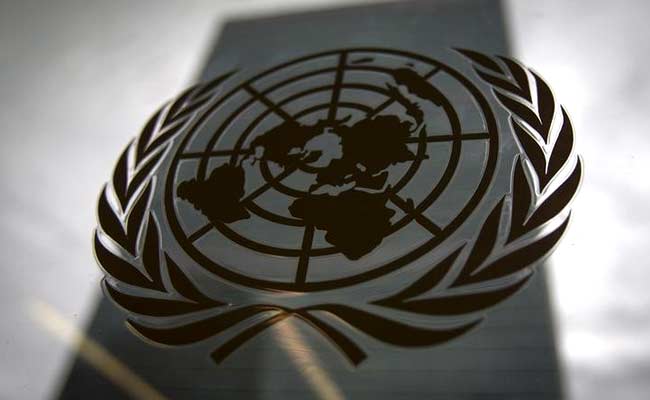
UN peacekeepers in Lebanon warned on Saturday against a “catastrophic” regional conflict as Israeli forces battled Hezbollah and Hamas militants on two fronts on the holiest day of the Jewish calendar.
Israel has faced a sharp diplomatic reaction over the incidents in south Lebanon, in which five Blue Helmets were injured.
On Saturday, the Lebanese Health Ministry said nine people were killed in Israeli air strikes on two villages near the capital Beirut.
Israel had earlier told residents of south Lebanon not to return home as its troops battled Hezbollah militants in a war that has killed more than 1,200 people since September 23, and displaced more than a million others. Have been forced to flee their homes.
Israeli military spokesman Avichai Adrai posted on Twitter: “For your safety, do not return to your homes until further notice… Do not go south; anyone who goes south may risk their lives “
Hezbollah said Saturday it fired missiles across the border into northern Israel, where air raid sirens set off and the army said it intercepted one projectile.
In an interview with AFP, UNIFIL spokesperson Andrea Tenenti told AFP that he feared the Israeli escalation against Hezbollah in south Lebanon could soon get out of control and lead to “a regional conflict with devastating implications for everyone.” “.
The UN force said five peacekeepers had been wounded in fighting in south Lebanon in just two days, and Tenenti said its positions there had suffered “enormous damage”.
Around Israel, markets were closed and public transportation halted as observant Jews fasted and prayed on Yom Kippur.
After the holidays, attention is likely to again focus on Israel’s expected retaliation against Iran, which launched nearly 200 missiles at Israel on October 1.
Israel began attacking Gaza soon after it suffered its worst attacks yet from Iran-backed Hamas militants on October 7 last year, and launched a ground offensive against Hezbollah in Lebanon on September 30.
‘Deliberately targeted’
On Friday, Israel faced criticism from the United Nations, its Western allies and others, which said it had “influenced” the UN peacekeeping situation in Lebanon.
UNIFIL said on Friday that two Sri Lankan peacekeepers were injured in the second such incident in two days.
Israel’s military said troops had responded to an “immediate threat” about 50 meters (yards) from the UNIFIL base in Nakura, and promised to conduct a “thorough review”.
Irish Army Chief of Staff Sean Clancy said it was “not a random act”, and French President Emmanuel Macron said he believed the peacekeepers were “deliberately targeted”.
Both countries are major contributors to UNIFIL whose peacekeepers are on the front lines of the Israel-Hezbollah war.
Efforts to negotiate an end to the fighting have so far failed, but Lebanese Prime Minister Najib Mikati said his government would ask the UN Security Council to issue a new resolution calling for a “complete and immediate ceasefire”.
The Lebanese army said two soldiers were killed in an Israeli attack on one of its bases in southern Lebanon on Friday.
In support of Iran’s ally Hezbollah, Iranian Parliament Speaker Mohammad Bagher Ghalibaf on Saturday visited the site of the deadly Israeli strike earlier this week.
A source close to Hezbollah said that Hezbollah’s security chief Wafiq Safa was targeted in the attack, but neither Hezbollah nor Israel confirmed that he was the target.
Ghalibaf’s visit to Lebanon is a sign of Tehran’s defiance, coming after Israel vowed to respond to Iran’s second direct attack.
Israeli Defense Minister Yoav Galant vowed that the response would be “deadly, precise and stunning”.
The United States is pushing for a “proportionate” response that would not push the region into a wider war, with President Joe Biden urging Israel to avoid attacking Iranian nuclear facilities or energy infrastructure.
deaths in gaza
Iran-backed Hezbollah began firing on Israel in support of its Palestinian ally Hamas after the attack on Israel on October 7, 2023, resulting in 1,206 deaths, mostly Israelis, according to an AFP tally based on official Israeli data. There were civilians, including hostages. Died in captivity.
Israel’s military campaign in Gaza has wreaked havoc and killed 42,175 people, most of them civilians, according to health ministry figures in the Hamas-run territory.
The Israeli crackdown in Gaza continues, with troops besieging the area around Jabaliya in the north, causing further suffering for thousands of people trapped there, according to the UN agency for Palestinian refugees.
Adrai, the Israeli military spokesman, posted another evacuation warning for an area near Jabaliya on Saturday.
“The specified area, including the shelters within it, is considered a dangerous war zone,” Adrai said on X, ordering residents to move to the humanitarian zone in southern Gaza.
Some residents said they are not ready to do so.
“They tell us to go south, but we won’t go because of the dangers and the army is shooting at people there,” Sami Asliya, 27, told AFP.
“There is no safe place, neither in the south nor in the north – everyone is in danger of death,” he said.
On Friday, Gaza’s civil protection agency reported that 30 people were killed in Israeli strikes in the area, including on schools being used as shelters by displaced people.
An AFP journalist in Gaza reported heavy shelling, explosions and gunfire on Saturday in the Zitoun neighborhood of Gaza City.
(Except for the headline, this story has not been edited by NDTV staff and is published from a syndicated feed.)







